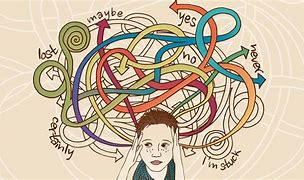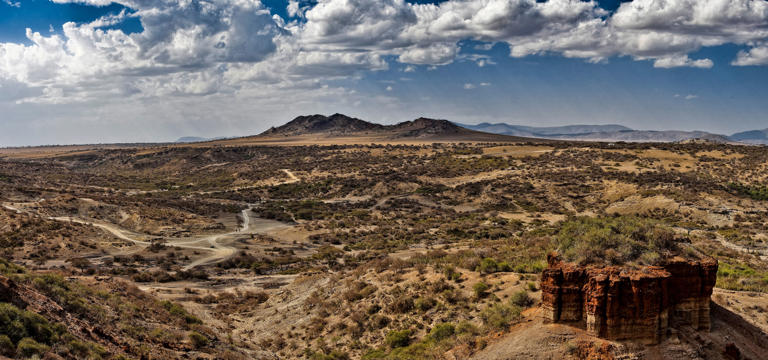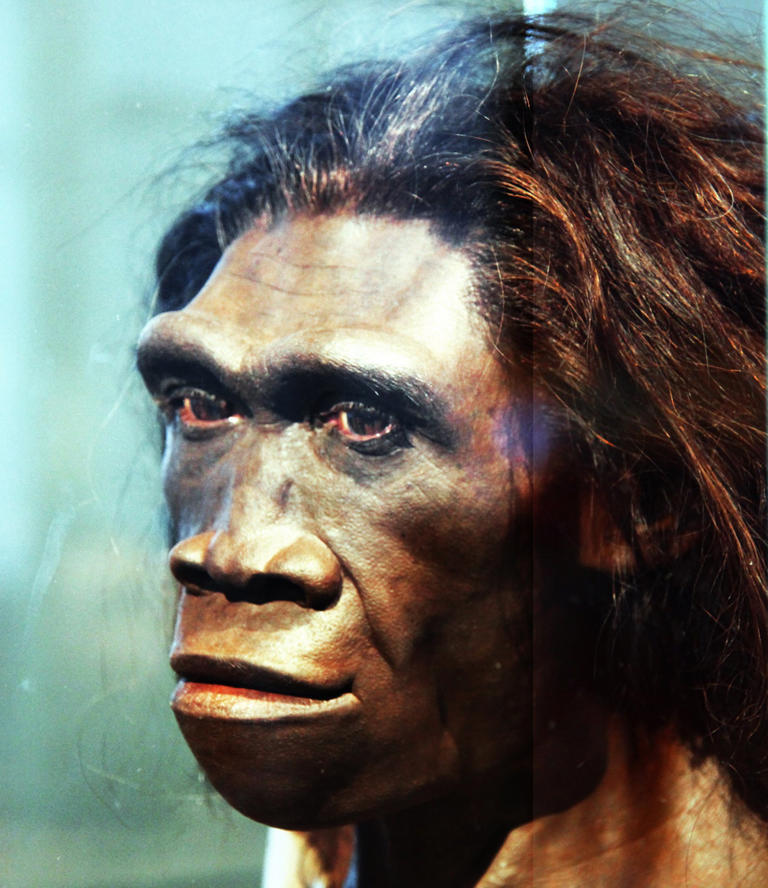THE 1.6 MILLION-YEAR-OLD DISCOVERY THAT CHANGES WHAT WE KNOW ABOUT HUMAN EVOLUTION
The 1.6 million-year-old discovery that changes what we know about human evolution
New research has pinpointed the likely time in prehistory when humans first began to speak.
Analysis by British archaeologist Steven Mithen suggests that early humans first developed rudimentary language around 1.6 million years ago – somewhere in eastern or southern Africa.
“Humanity’s development of the ability to speak was without doubt the key which made much of subsequent human physical and cultural evolution possible. That’s why dating the emergence of the earliest forms of language is so important,” Dr Mithen, professor of early prehistory at the University of Reading, told The Independent.
Until recently, most human evolution experts thought humans only started speaking around 200,000 years ago. Professor Mithen’s new research, published this month, suggests that rudimentary human language is at least eight times older. His analysis is based on a detailed study of all the available archaeological, paleo-anatomical, genetic, neurological and linguistic evidence.
When combined, all the evidence suggests that the birth of language occurred as part of a suite of human evolution and other developments between two and 1.5 million years ago.
Significantly, human brain size increased particularly rapidly from 2 million BC, especially after 1.5 million BC. Associated with that brain size increase was a reorganisation of the internal structure of the brain – including the first appearance of the area of the frontal lobe, specifically associated with language production and language comprehension. Known to scientists as Broca’s area, it seems to have evolved out of earlier structures responsible for early humanity’s ability to communicate with hand and arm gestures.
New scientific research suggests that the appearance of Broca’s area was also linked to improvements in working memory – a factor crucial to sentence formation. But other evolutionary developments were also crucial for the birth of rudimentary language. The emergence, around 1.8 million years ago, of a more advanced form of bipedalism, together with changes in the shape of the human skull, almost certainly began the process of changing the shape and positioning of the vocal tract, thus making speech possible.
Other key evidence pointing to around 1.6 million BC as the approximate date humans started speaking, comes from the archaeological record. Compared to many other animals, humans were not particularly strong. To survive and prosper, they needed to compensate for that relative physical weakness.
In evolutionary terms, language was almost certainly part of that physical strength compensation strategy. In order to hunt large animals (or, when scavenging, to repel physically strong animal rivals), early humans needed greater group planning and coordination abilities – the development of language would have been crucial in facilitating that. Significantly, date-wise, human hunting began around two million years ago – but seems to have substantially accelerated by around 1.5 million years ago. Around 1.6 million BC also saw the birth and inter-generational cultural transmission of much more sophisticated stone tool technology. That long-term transfer of complex knowledge and skills from generation to generation also strongly implies the existence of speech.
What’s more, linguistic communication was probably crucial in allowing humans to survive in different ecological and climatic zones – it’s probably no coincidence that humans were able to massively accelerate their colonisation of the world around 1.4 million years ago, ie, shortly after the likely date of the birth of language. Language enabled humans to do three key forward-looking things – to conceive of and plan future actions and to pass on knowledge.
“That’s how language changed the human story so profoundly,” said Professor Mithen. His new research, outlined in a new book, The Language Puzzle, published this month, suggests that before around 1.6 million years ago, humans had had a much more limited communication ability – probably just a few dozen different noises and arm gestures which could only be deployed in specific contexts and could not, therefore, be used for forward-planning. For planning, basic grammar and individual words were needed.
Professor Mithen’s research also suggests that there appears to be some continuity between very early human languages and modern ones. He believes that, remarkably, some aspects of that first linguistic development 1.6 million years ago still survive in modern languages today. He is proposing that words, which – through their sounds or length – describe the objects they stand for, were almost certainly among the first words uttered by early humans.
Indeed, future research may be able to tentatively recreate the likely organisation and structure of those first languages. Although the birth of language seems to have occurred around 1.6 million years ago, that birth represented the beginning of linguistic development, not its culmination.
For hundreds of thousands of years, language only very gradually became more complex, ultimately gaining in sophistication after the emergence of anatomically modern humans 150,000 years ago.
Articles - Latest
- Earthquakes can trigger quartz into forming giant gold nuggets, study finds
- Linda Nolan, singer and television personality, dies aged 65
- Sly Stone, pioneering funk and soul musician, dies aged 82
- Dangers of an overloaded car include:
- Natural Disaster today
- Japan earthquake: Kushiro shakes for 'too long' as 6.1 mag tremor hits
- 'Cult' members jailed over coroner kidnap plot
- Flood risk threatens Swiss valley after glacier destroys village
- Thailand Grapples with Floods and Economic Shifts: Government Response, Community Resilience, and Market Predictions
- Powerful hailstorm floods buildings and streets in Gniezno
- The Significance of the 49-Day Journey After Death
- Killing prisoners for transplants: Forced organ harvesting in China
- Southern Japan hit by 6.6-magnitude quake near Nankai Trough, tsunami warnings lifted
- Peru’s coastline battered by tsunami-like waves one day after country declares environmental emergency
- California fires live updates: ‘Dangerous’ winds return as residents are warned over threat of new wildfires
- Osibisa founding member and singer Teddy Osei dead at 88
- Oliviero Toscani, photographer behind shock Benetton ads, dead at 82
- California LA Mayor Karen Bass awkwardly ignores questions from reporter about California fires
- UK set for more freezing weather as homes and businesses deal with flooding
- Jean-Marie Le Pen dead at 96: His political career through the years
- Jimmy Carter, former US president, dies aged 100
- ‘Jazz’s most significant composer’ Benny Golson dies at 95
- Billionaire founder of fashion chain Mango dies in accident
Articles - Most Read
- Main
- Contact Us
- The science behind Ouija boards
- Cosmic Consciousness - What is Cosmic Consciousness-2
- Cosmic Consciousness-Introduction
- Cosmic Consciousness - Introduction-2
- MASSIVE 6.1 MAGNITUDE EARTHQUAKE HITS NEW ZEALAND AS NATION STILL REELING FROM CYCLONE
- ARCHAEOLOGISTS UNRAVEL THE TRUTH OF APHRODITE, GODDESS OF LOVE, ON VALENTINE'S DAY
- Cosmic Consciousness First Words - 1V - 2
- The Human Condition-Thomas Keating
- Cosmic Consciousness First Words - V -
- Cosmic Consciousness V - 2
- Cosmic consciousness - First Words - IV
- Shakyamuni Buddha or India the 1st “Black Revolutionary Hero.”
- Cosmic Consciousness - What is Cosmic Consciousness?
- The Human Condition-2-Thomas Keating
- Evolution and Devolution-Chapter 2
- The Human Condition - Thomas keating-3
- Cosmic Consciousness-On the Plane of Self Consciousness
- Drinking From The Mountain Stream - Milarepa
- The Human Condition - 4
- Cosmic Consciousness - 3 - On the Plane of Self Consciousness
- The Human Condition - 6
- Evolution and Devolution-Chapter 1
- Contemplation and the Divine Therapy - 2
- On the Plane of Self Consciousness - 2
- The Buddhist System of Liberation - 2
- Milarepa's World-2
- The Human Condition - 5
- Milarepa's World
- On the Plane of Self Consciousness IV
- The Buddhist System of Liberation
- On the Plane of Self Consciousness IV - 2
- JERRY RAWLINGS, GHANAIAN STRONG MAN WHO CAME TO POWER IN A COUP BUT INTRODUCED DEMOCRACY – OBITUARY





